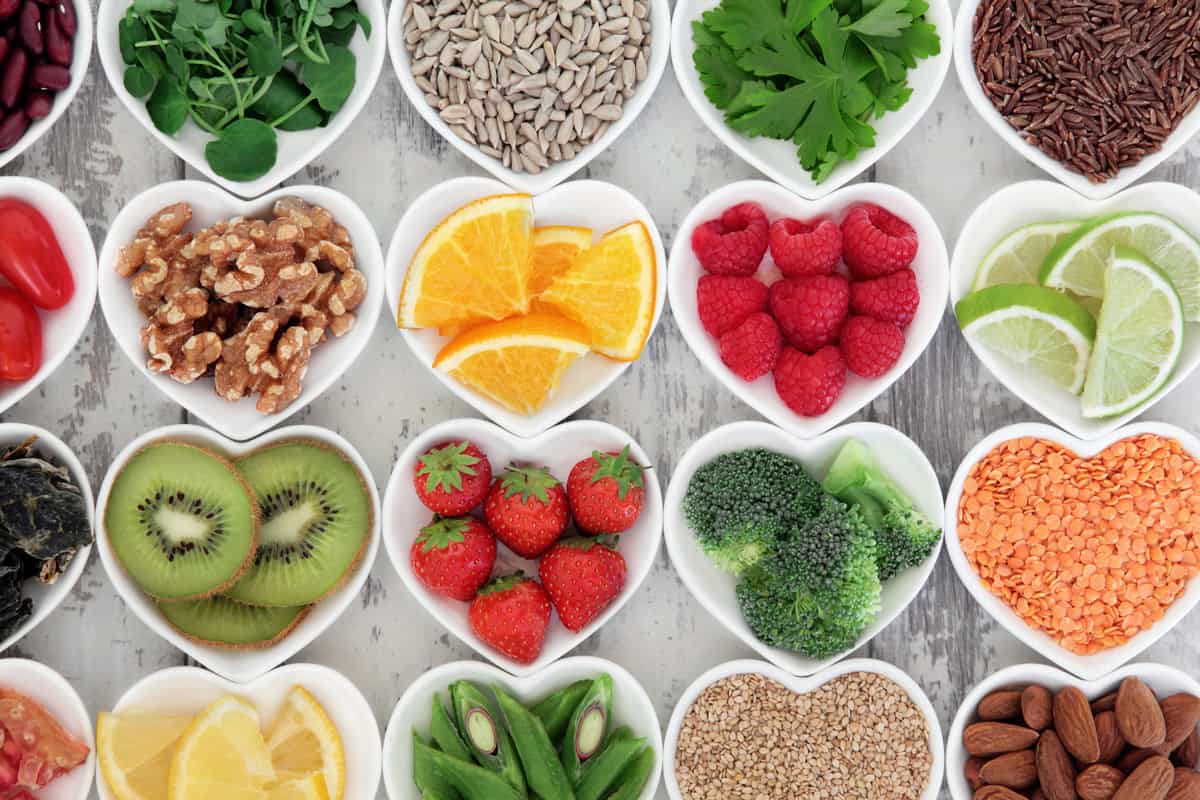Heart-Healthy Foods Do Double-Duty for Brain Health

Adopting A Healthy Diet
During American Heart Health Month, it's a good time to review some of the steps that can lead to better cardiovascular health, including adopting a heart-healthy diet. As an added benefit, especially for older adults, many of the same foods in a heart-healthy diet also benefit the brain by promoting cognitive health.
Variety of nutritious foods is the key to good health.
Heart disease remains the number one killer of both men and women in the US. Yet in the face of that grim statistic, many Americans continue to indulge in high-fat, high-sodium foods that add to their waistlines and subtract from their longevity. National survey data shows that 43% --- nearly half --- of our daily caloric intake comes from foods like burgers, pizzas, chips, sugary beverages and desserts, with a noticeable deficit of fruits, vegetables and low-fat dairy.
The American Heart Association has published diet recommendations to use as an effective weapon against cardiovascular disease. The key to a heart-healthy diet is to eat a variety of nutritious foods from all the food groups, including:
- a variety of fruits and vegetables
- whole grains
- low-fat dairy products
- skinless poultry and fish
- nuts and legumes
- non-tropical vegetable oils
The AHA also stresses the importance of limiting the consumption of saturated fat, trans fat, sodium, red meat, sweets and sugar-sweetened beverages.
Many foods benefit both heart and brain
Some of the best heart-healthy additions to your diet also turn out to be brain boosters as well. Here's just a sample of some of these heavy hitters for both the head and the heart.
- Salmon
Salmon and other fatty cold water fish like sardines and mackerel are loaded with omega-3 fatty acids which help reduce plaque buildup in the arteries while also protecting brain neurons and reducing cerebral inflammation.
- Blueberries
Blueberries, as well as strawberries and other berries, contain anthocyanins. These antioxidant flavonoids are thought to decrease blood pressure and dilate blood vessels. Berries can not only lower the risk of heart attack, but they can also boost cognitive function and improve memory.
- Nuts
Almonds, walnuts and other nut varieties contain fiber that improves heart health and vitamin E which helps lower bad cholesterol. Walnuts are particularly good for the brain since they have a high concentration of DHA, a type of omega-3 fatty acid shown to improve cognitive function in adults and help slow age-related cognitive decline.
- Red wine
When limited to a class or two a day, red wine is thought to lower the risk of heart disease, thanks to the resveratrol found in the skin of grapes. This powerful antioxidant helps neutralize free radicals that can impede critical cellular functions --- including those in the brain.
- Avocado
Avocados are rich in healthy monounsaturated fats that may lower the risk of heart disease by contributing to healthy blood flow and lower blood pressure. These benefits also promote cognitive health. As an added plus, the fatty acids in avocados help protect nerve cells in the brain.
Choose your foods wisely and stay healthy for the long run
The right diet --- along with portion control, moderate exercise and other subtle lifestyle habits --- can have a significant impact on health and longevity for older adults. Whether the focus is heart health, brain health or simply wanting to feel your best, choosing the right fuel for your body is the smart choice at any age.
References:
American Heart Association: The American Heart Association Diet and Lifestyle Recommendations
CardioSmart: Experts Clarify Definition of a Heart-Healthy Diet
Mayo Clinic: Heart-Healthy Diet: 8 Steps to Prevent Heart Disease








